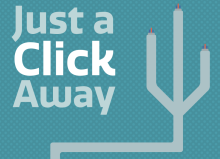Don’t Break the Internet - Episode 662 of the Community Broadband Bits Podcast

In this episode of the podcast, Chris is joined by Mike Masnick, founder and editor of Techdirt, for a wide-ranging conversation about the Internet’s past, present, and uncertain future.
They dive into the origins and misunderstood purpose of Section 230, the bipartisan push to reform it, and how most proposed “fixes” could actually make the Internet worse—especially for smaller platforms and individual users.
Along the way, Mike and Chris discuss government overreach, misinformation, and why protecting free expression online means accepting complexity over easy answers.
This show is 35 minutes long and can be played on this page or via Apple Podcasts or the tool of your choice using this feed.
Transcript below.
We want your feedback and suggestions for the show-please e-mail us or leave a comment below.
Listen to other episodes or view all episodes in our index. See other podcasts from the Institute for Local Self-Reliance.
Thanks to Arne Huseby for the music. The song is Warm Duck Shuffle and is licensed under a Creative Commons Attribution (3.0) license


